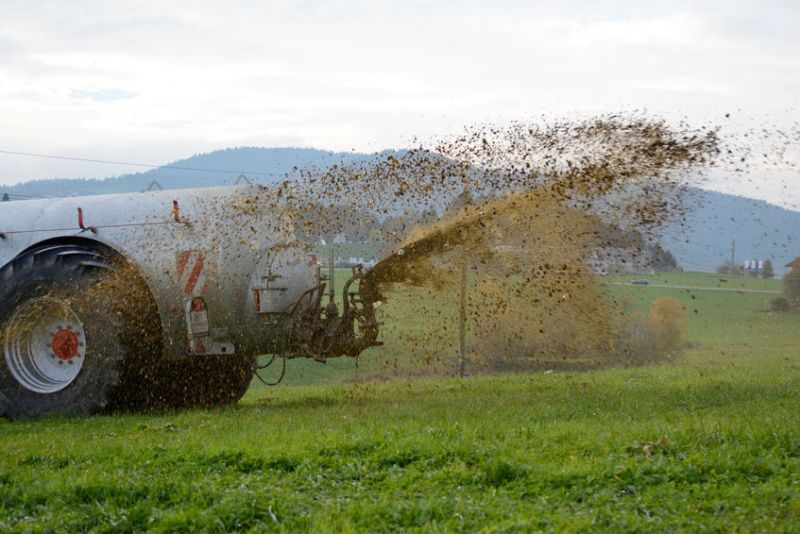
Sewage sludge used as fertiliser on British farms could be contaminating land with microplastics, an Environment Agency report has warned.
Around 3.6 million tonnes of sewage sludge, known as biosolids, is reprocessed for farmers' use every year, and the practice has boomed within the last 20 years.
The 'Materials to Land' report highlights that, in 1998, the government banned water firms from dumping the sewage at sea due to the threat to marine life.
Farmers are entitled to use the biosolids as an alternative to manufactured fertilisers, and they play a significant role in enhancing soil quality and soil fertility.
But concerns have been raised that the sludge could be contaminating farmland with creeping levels of microplastics, metals and organic pollutants.
The report, completed in 2017 but only made public now due to a freedom of information request, says the composition of the sludge has changed over the years.
It explains that the 'number of pollutants which may pose a risk to human health and the wider environment has expanded'.
It adds that microplastics could be harming soil ecosystems or crops either directly or through hormone-disrupting substances.
The Environment Agency, which commissioned the report, said it is currently working on a sludge strategy which is due to be published later this year.
The strategy aims to find solutions to sludge pollution and how toxins can be removed from the UK's natural environment.
It will also assess how the EA can continue to find waste recovery activities that work as an alternative to manufactured fertilisers whilst counteracting the damaging pollutants that have been introduced.
An Environment Agency spokesperson said: “We take our responsibility to protect the environment very seriously, which is why we commissioned this report to inform our upcoming sludge strategy and make sure our regulations are based on the latest scientific data.
“While spreading waste can have beneficial impacts on the land when used as a substitute for manufactured fertilisers, we are clear this practice must not harm the environment.
“We will not hesitate to take enforcement action against those who fail to manage any risks appropriately – including prosecution in the most severe cases.
“Indeed in 2017 we strengthened our regulation by amending permits to spread on land and in 2018 we increased our charges to better fund our compliance activities.”
Greenpeace's investigative journalism unit, Unearthed, obtained EA's report through a freedom of information request.
